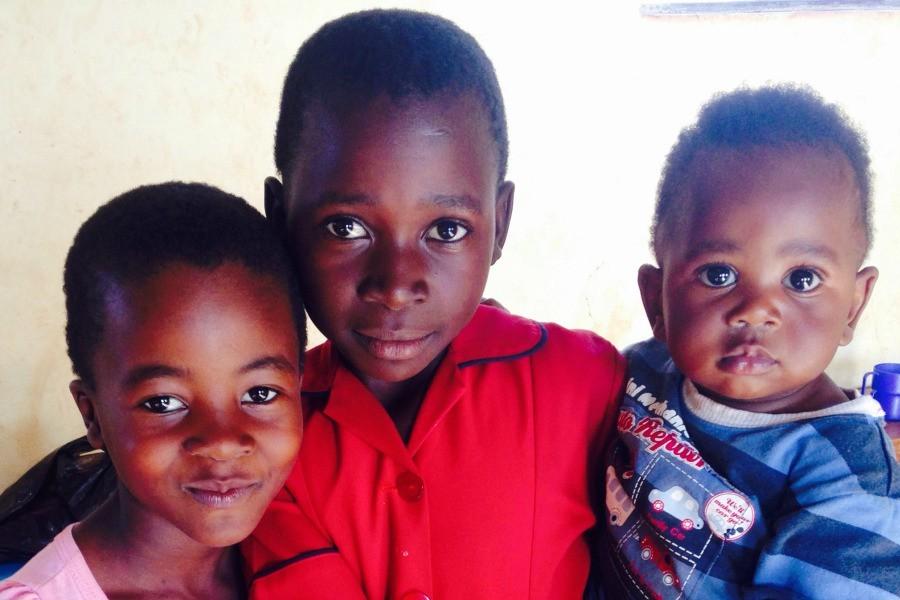Life is good here in Msengeni, which is actually the name of my village. Yep. Peace Corps got it wrong. I discovered this the hard way while riding public transport home one day. When the bus conductor asked where I was going, and I responded, “Mbokojweni,” it caused a decent amount of confusion. Luckily, we figured it out. With this being said, I walked around for weeks thinking and telling people I lived in a place that didn’t exist… which really isn’t the weirdest thing to happen these days.
I feel as if I’ve been properly initiated into Swazi culture. I can now weave grass mats, cook “pap” over an open fire, and bathe my entire body using less than 1 liter of water (judge all you want). Sometimes, I forget that I’m a foreigner, and I find myself getting annoyed at people staring at me. Then I realize, it’s probably because I’m white. Even though I feel fully integrated into my community, I still stick out like a sore thumb. In fact, the members of Msengeni seem to know every second of my whereabouts. My host brother recently told me that, if there was a town newspaper, I’d make the front page every day. He told me this after I decided to herd the cattle one evening. I wandered out into the forest with my brother and climbed a mountain in search of all of my family’s 11 cows. The next day, my venture was the talk of the town.
They told us that “Integration” would be difficult, and it has been. It’s hard to not be able to begin working on projects that you know the community needs. I’ve recently been busy writing my community needs assessment report, which is the assignment Peace Corps gave us to complete during our integration period. Basically, I had 2 months to completely assess my community for need. It wasn’t a difficult assignment, being that my community is so tiny and demonstrates a significant amount of need; however, I’m definitely glad it’s completed. Now I can focus on fundraising and basing my projects off of my assessment for the duration of “Integration.” By December, I’ll finally be allowed to start working, and I’m more than ready.
Every Wednesday, I have been teaching life skills at the high school. I’m really enjoying the kids. Teenagers have always been interesting to me, because they’re rebellious, emotional, and all-around hot messes. This is true no matter where you are in the world. Last week, a group of 7 high school kids decided to brew their own beer and bring a 5 liter bucket of “Swazi-brew” to school to sip on throughout the day. Their master plan was discovered when teachers began noticing the subtle slurring of words during their oral examinations. How does this affect me? I got to rearrange my curriculum to educate about the many dangers of abusing alcohol.
Even though I feel fully integrated into my community, I still stick out like a sore thumb.
When I’m not teaching, I’m still spending time at the high school. I’m just about finished writing a grant to fund a library project within the school, even though I’m not allowed to apply until December. Last month, I was approached by a teacher and asked to help out in preparing a few students for a debate. Apparently procrastination is big here… The debate was literally in 3 days, and the students had no idea what a debate even was. So, I pulled together all of the knowledge I had on debating and attempted to project it onto the students. The topic was pretty interesting: “Is Swazi traditional initiation of males still relevant in today’s society?” We prepared as best we could and ended up getting 3rd place overall at the debate. I can’t explain how proud I felt as I watched the kids compete… It was pretty cool.
The Neighborhood Care Point (NCP) is a place that I enjoy spending a lot of time. The 6 local mothers (including my own) that run the NCP are nothing short of amazing. They dedicate every day to cooking for all of the orphans and vulnerable children in Msengeni. They even feed me, if there are leftovers (rice and beans all day, baby). Because there is no pre-school in my community, I want to turn the NCP into a learning facility. So, I’ve began fundraising and exploring ideas. I’ve used my artistic talents to decorate the walls with the ABC’s, numbers, and colors. Come December, I’ll finally be able to start using my graduate degree in development and begin working with the mothers on teaching at the children’s developmentally appropriate levels.
I have to say, the best part of this experience has been getting to know the people, especially my host family. Unlike most volunteers, I eat all meals with my family and don’t spend much time alone. Occasionally, I even cook for ALL of my family. They are loving pasta and peanut butter no bakes. I’ve grown so close to my family in these past 2 months, especially my host mother. Her name is Sibongile, and she was is 1 of 2 wives of my father, who I still have not yet met. I’ve become her sidekick. The other day, I discovered that Sibongile has an “English” name: Vivian. Obviously, I call for her yelling, “Yo, Viv…” just like any Fresh Prince of Bel Air fan would do. The children have caught on, and it’s spreading like wildfire. Now, it is not uncommon to hear, “Yo, Viv!” coming from all directions around the village. Make just laughs… I’ll have to show her a YouTube video of Will.
In-Service Training (IST) begins on November 1, the day following the Peace Corps annual Halloween fiesta. I don’t know if I’m dressing up or not, but I’m anticipating being in rare form for the first day back in training. The good news is that I’ll move back to the dorms for 10 days and be blessed with running water again.
Every day, I’m learning something new. My community looks out for me and has accepted me as one of its own. I do everything as the people in my village do, which is why I feel I’m especially integrated. As I said earlier, I’m basically Swazi.




